The Festival in Lusaka, Zambia
Monday, October 20, 2008
 Lusaka, Zambia
Lusaka, Zambia
This morning Theresa and Zera prepare a tasty breakfast for us. They are so enjoyable to talk to. Again, Theresa is from Kadona, Zimbabwe where her aunt, Shirley Banda's mother lives. She is the niece of of Mrs. Chichaya, Shirley's mother. Since she is the daughter of the of a brother of Mrs. Chichaya, the other cousins call her "mother" in a respectful way. So, Shirley, who is somewhat older than Theresa calls her cousin "mother" since she came from an uncle. A bit confusing at first, but we drew out the relationship in my notebook. They are of the Shona tribe. Kambani Banda is a Chewa originally from Mozambique.
We were picked up by James Mfula who lives nearby and headed for the Feast site 12 miles away. We were able to buy this land earlier in the year. It belongs to us. It's only in the past few months was it possible to hold the Feast site there. The dimensions are 100 by 500 meters...a long rectangle. A stream runs through it and it is mostly wooded. A perfect place for a summer camp. To make it secure, it was necessary to put an electric fence around it, basic sanitation and put in two water wells.
Mr. James Mfula picked us up in a Toyota SUV. He is a noted figure in Zambia in the Ministry of Home Affairs that protects the borders. His title is Deputy Permanent Secretary and he is highly respected. He is a quiet, dignified and humble man. He bought us a SIM card for our mobile phone which now makes it a Zambian cell phone with a Zambian phone number. He also bought 20,000 units of air time. Sounds like a lot-but it only six or seven minutes. The exchange rate is about 3800 Zambian Kwacha to the US dollar. The units are Kwachas. You learn to cut the chit chat when talking on a cell phone.
The reason we had a SUV was because he damaged his exhaust pipe in his car crossing one of the culverts and borrowed this from work.
As we arrived at the Feast site we were greeted by the 300 members all gathered in groups from where they were from: Lusaka, Mapoko, the Copper Belt, Nalubanda. The Copper Belt is up north and borders the DRC, the Democratic Republic of the Congo. They had a big sign greeting me and Bev. They were singing a welcoming song and as we shook everyone's hand they were singing. It was very touching. They had done this previously at our four festivals with the Zambians.
It was wonderful seeing so many people that we, as with the Malawians, had gotten to know and I was able to recognize so many of the families and call them by name: the Kasukabantu's, Mombe's, Ndia, Chifwepa, Maninga and on and on. They were thanking us for the help that LifeNets has brought in. The measure of the well-being has been reflected in a 50% rise in contributions to the Church. This past year was exceptionally fortuitous as the price of maize was overall higher and the growers did not even have to hold it long since the prices stayed high and they could sell earlier. Overall since we started the cattle restoration program and the farm credit program, the income has increase manifold from 2000 when I first visited and most lived as completely as subsistence farmers with virtually no disposable income. What a wonderful experience to be part of helping entire communities prosper.
After the welcoming we had to get on with the Church service.
The sermonette was given by James Mfula about thinking ahead to next year's Feast. Today is officially the last day of the seven day Feast and tomorrow is the Last Great Day, a separate one-day Festival.
I proceeded to give a sermon about the Law of God as being the basis of stability and peace in the future world. It was based on Isaiah 2:2-4. My sermon was translated in the the Tonga language by Harbin Monge, a leading member and the one who supervised the setup of the Festival site. He's a very good-natured man. Giving sermons with consecutive translation is challenging. Back and forth. I try to keep my sentences or even partial sentences short....it goes much better that way with quick exchanges rather than long statements by each. But, for the speaker it is wearing and restricting.
After the service it's time for lunch. Everything is outdoors. Our hands are washed by a woman who comes around with a pitcher of water, a bowl and towel. We sat in with a group of leaders and had good conversation as we ate. The Zambian families are large. A ten child family is not atypical. I asked the person next to me how many new children we were having this coming year. The blessing of the children will be tomorrow. I know that the ministry here has been encouraging more family "planning" and once a statement was issued: "You DON'T HAVE TO HAVE A CHILD EVERY YEAR!" The person next to me responded to my question that there was only ONE new child. For 300 people? It was quickly pointed out that he was speaking only for HIS family. There was another new baby a few feet away. At the Blessing of the Children there would actually be new babies. I had been to the Festival here before where we had about 23 babies to bless.
Afterwards we talked to a number of families, some that we were meeting for the first time. One was Chisangu Mundongo and his wife Mary from the Copper Belt. He is 53 years old and has a sarcoma in his right leg and will be getting four radiation treatments starting November 14th in Lusaka. He thanked LifeNets for providing funding for the operation.
One lament about NGO's (Non-Government Organizations) which are charities was that they basically would settle in the capital Lusaka and just plan and plan...not doing very much and drive around in their fancy vehicles...often being brand-new Land Rovers. We spoke a lot with Wilson Nkoma and his wife Dorothy.
After lunch it's time for the Family Day Races! This is always lots of fun with various races with people racing in various fashions such as sprints, three-legged race and such. The grand finale is the Tug of Peace. Most of these tugs were won by women. The women in Africa are strong. We witness this by seeing them carrying heavy loads and water on their heads. They really are tough.
There has been a water crisis here at the site of 300 when the two wells that were quickly dug before the Festival went dry. They need to be dug deeper and will be, but the immediate crisis was NO WATER for all the assembled. Kambani Banda quickly bought two water tanks. One was 5000 litres and the other is 2500 litres to provide the necessary water. He used the LifeNets truck to go each morning to fill them and bring them back for use by this Little City. They were so thankful to have the truck.
James Mfula drove us back to the Banda's where we are staying. The Banda's have built on a separate room with bathroom for visitors and we really appreciated the very comfortable facility for us. It has a bed, netting, fridge, desk, fan. But, I have no computer, my Blackberry does not want to connect to the local ZAM network, I have no Internet, email, interruptions. It's great! Just people, focused thinking and relationships. And, that's what it's all about. I write all this with a pen and notebook. Refreshing.
Other Entries

 Lusaka, Zambia
Lusaka, Zambia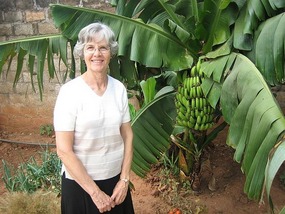
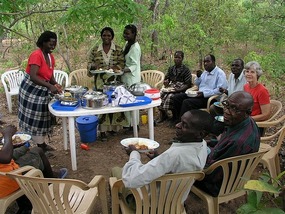
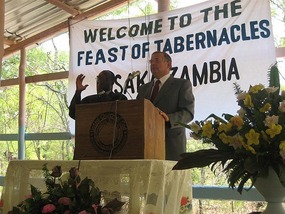
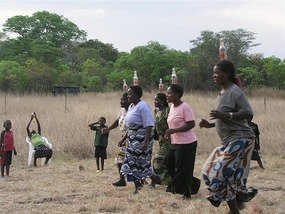
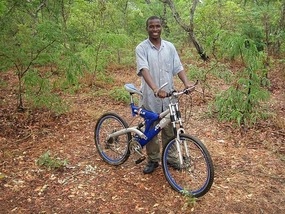
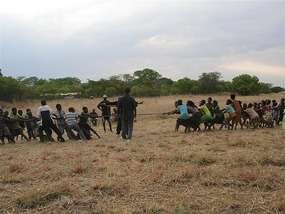





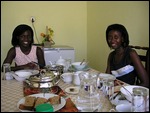
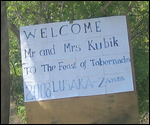
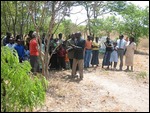
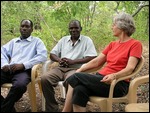
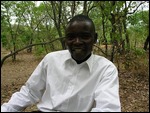
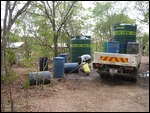
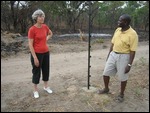
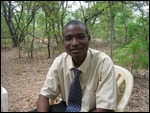
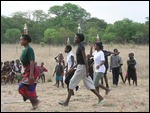
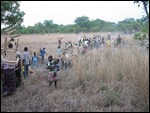
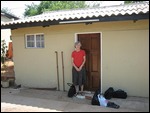
2025-05-22